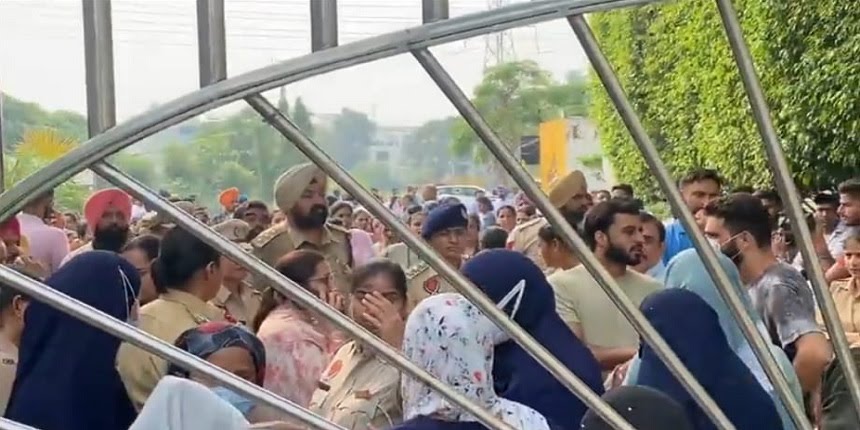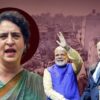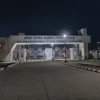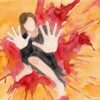A protest held by by paramedical students at Desh Bhagat University in Punjab took a violent and unsettling course on Tuesday, September 14, leaving many injured and hospitalized.
The students, predominantly hailing from Jammu and Kashmir, were demonstrating against the university’s decision to transfer their admissions to a college lacking accreditation from the Indian Nursing Council (INC) and the Punjab Nursing Registration Council (PNRC). The peaceful protest turned chaotic when university authorities confronted the students.
On Saturday, an FIR was filed against the students. The FIR, filed after a resident of Fatehgarh Sahib, Punjab, named Arshdeep Singh lodged a complaint against the students. The FIR accuses the students under various sections of the Indian Penal Code (IPC), including 353 (Assault or criminal force to deter public servant from discharge of his duty), 186 (Obstructing public servant in discharge of public functions), 332 (Voluntarily causing hurt to deter public servant from his duty), 427 (Mischief causing damage to the amount of fifty rupees), 283 (Danger or obstruction in public way or line of navigation), 147 (Punishment for rioting), and 149 (Every member of unlawful assembly guilty of an offense committed in prosecution of common object).
The aftermath of this incident has left several students in a state of shock, with some requiring hospitalization and remaining unconscious. Their families and supporters have expressed deep concern for their well-being.
In response to the students’ complaints, Senior Superintendent of Police (SSP) Ravjot Grewal has taken decisive action against the University Chancellor, Zora Singh, and 15 other university employees. FIRs have been registered against them under IPC sections 420 (Cheating and dishonestly inducing delivery of property), 406 (Punishment for criminal breach of trust), 354-B (Assault or use of criminal force to woman with intent to disrobe), 323 (Punishment for voluntarily causing hurt), 341 (Punishment for wrongful restraint), 427 (Mischief causing damage to the amount of fifty rupees), 506 (Punishment for criminal intimidation), 148 (Rioting, armed with a deadly weapon), and 149 (Every member of unlawful assembly guilty of an offense committed in prosecution of common object).



























































